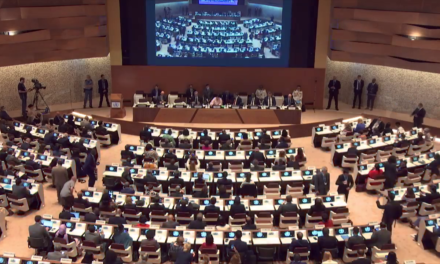March 23, 2024
A groundbreaking study presented at the Society of Interventional Radiology Annual Scientific Meeting reveals that uterine artery embolization (UAE) offers a promising solution for controlling postpartum bleeding, thereby potentially averting the need for hysterectomies in numerous patients.
Study Methodology
UAE, a minimally invasive procedure administered by interventional radiologists, involves the injection of minute particles to temporarily obstruct blood flow in the uterine arteries. Researchers conducted a retrospective review encompassing 66 patients, with a median age of 31 years, who underwent UAE for postpartum hemorrhage between 2014 and 2022.
The median duration between the onset of postpartum hemorrhage and UAE was 4 hours, with instances recorded up to 15 days postpartum. Patients experienced a median blood loss of 2790 mL, with over 80% requiring pre-embolization transfusions.
Key Findings
Remarkably, successful hemorrhage control was achieved in 94% of patients, illustrating the efficacy of UAE in managing postpartum bleeding. However, patients who endured substantial blood loss prior to embolization were more susceptible to developing post-embolization syndrome, characterized by symptoms such as fever, abdominal pain, and nausea.
The study also reported an overall infertility rate of 19% following UAE, underlining the importance of weighing the potential consequences of the procedure. Notably, higher fibrinogen levels prior to embolization were linked with improved hemorrhage control outcomes.
Practical Implications
Lead by Younes Jahangiri, MD, a resident in the interventional and diagnostic radiology program at Michigan State University/Corewell Health, and senior author James Morrison, MD, assistant professor of interventional radiology at the same institution, the study emphasizes the necessity for obstetricians to collaborate closely with interventional radiologists. Early involvement of radiologists can facilitate prompt initiation of UAE if conservative measures fail to address postpartum hemorrhage effectively.
Study Limitations and Disclosures
Despite the groundbreaking findings, it’s essential to acknowledge the limitations of this study, including its retrospective nature and relatively small sample size. Nevertheless, no disclosures were reported by the researchers.
Conclusion
The study underscores the pivotal role of UAE in managing postpartum hemorrhage, offering a viable alternative to hysterectomies in many cases. With further research and collaboration between obstetricians and interventional radiologists, UAE has the potential to significantly improve outcomes for women facing postpartum bleeding complications.
This study represents a significant advancement in maternal healthcare, providing hope for safer and more effective interventions following childbirth.












